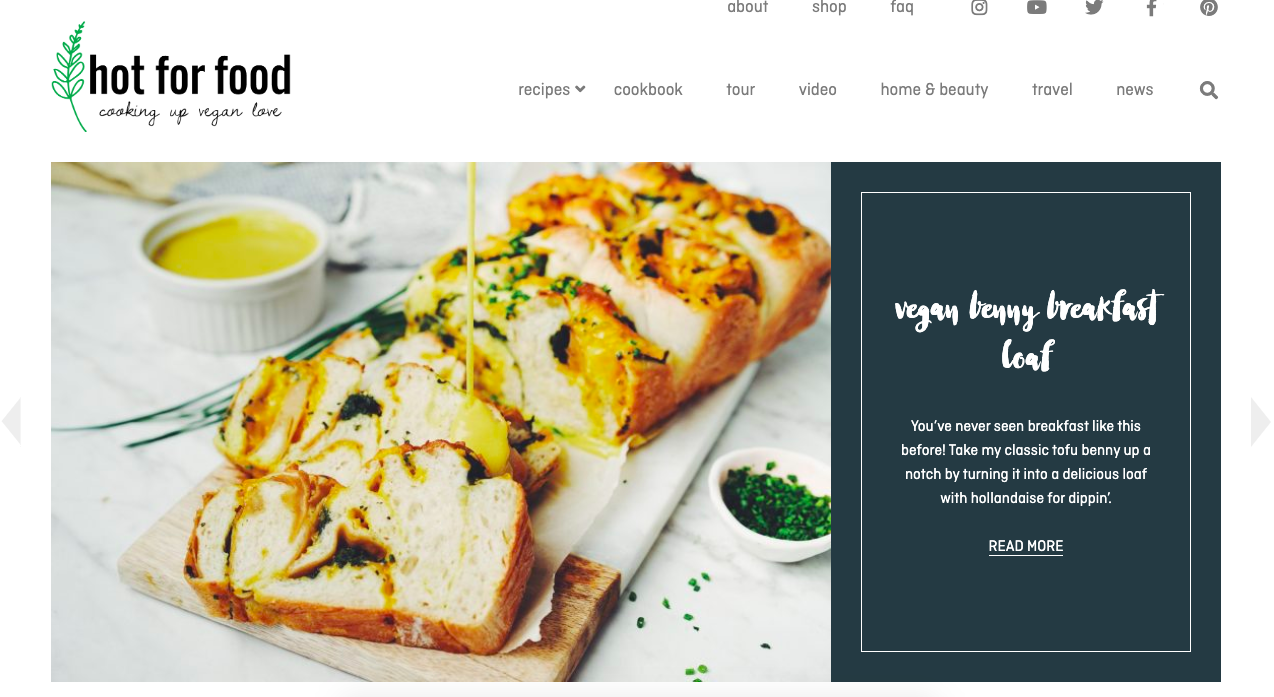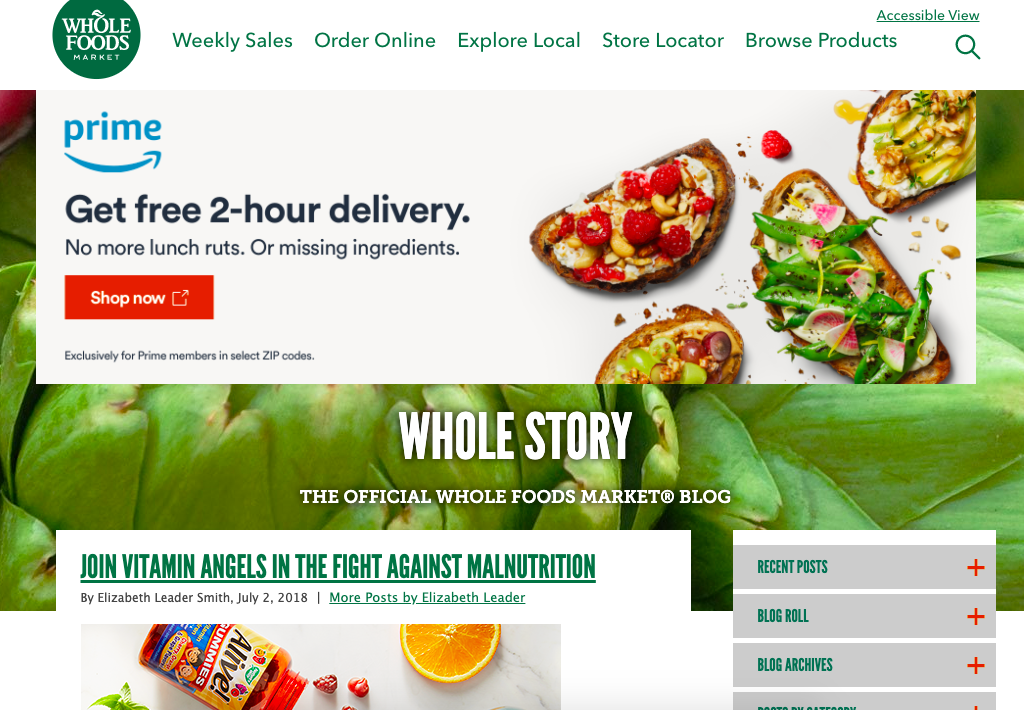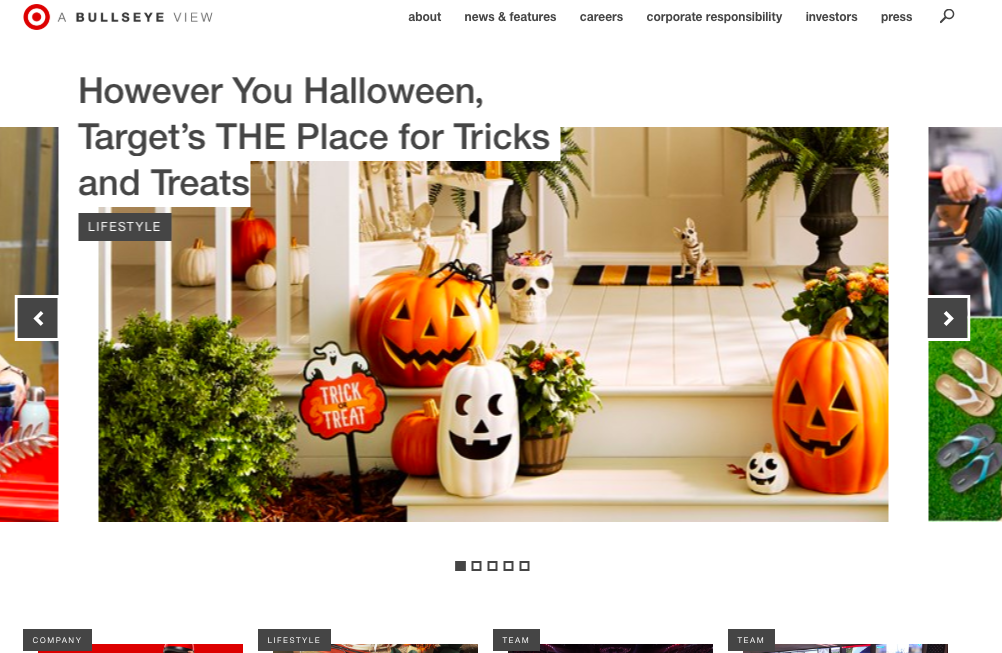Clothes, food, habits — outgrowing things is a natural part of life. That's true for brands as well. When brands decide they’ve outgrown their current way of doing things, this might call for a rebrand.
Outgrowing a brand, or at least a brand name, is common. Marketing platform Mailchimp used their rebranding to help the company transition to a more "grownup" brand that would allow them to serve more small businesses. Many blogs I read, like “Liv’s Healthy Life,” (Now known as just “Liv B,”) quickly rebrand when they realize their old blog name just doesn’t make sense anymore.
While rebranding a business can be a smart and necessary step to growing a long-lasting business, renaming your blog or business doesn't have to be. To combat outgrowing a blog name too quickly, let’s go over some strategies to use when naming a blog.
How to Choose a Blog Name
1. Identify your niche
What are you doing? What will your blog be about? Will it be an extension of your business or its own project? Identifying what your blog will be about is key to defining a name that’ll expand with you.
The blog name will represent your unique point of view in your industry or niche. It should vibe with the aesthetic of your blog and define the mood you want to give your readers when they visit your blog’s homepage. It should also be descriptive of the type of content you’ll publish.

Image source: Hot for Food
I love the blog name “Hot for Food” so much. The blog is a companion to creator Lauren Toyota’s YouTube channel of the same name. It’s a great example of a name that goes well with its cooking niche.
The name is also broad enough that Toyota can grow her brand outward. If she wanted to release a cookware line down the road, “Hot for Food” would still make sense, and have about a million available puns at the ready. How fun would a saucepan labeled “Hot with Sauce” be?
2. Do your research
Look at what prominent blogs in your industry are doing. Take note of what you like and don’t like, and use their blogs as a springboard for what readers in your industry like to see. Look for how these blogs are branding, the names of their blogs, and the responses their content receives.
For example, if you’re starting a blog about technology, look at TechCrunch, a massive blog about startups and technology. Their name is short, memorable, and professes their content strategy all in one: to dissect and disseminate the latest tech news for their readers.
It’s also a good idea to think about how your blog will stand out from others. This is also a good time to find out if any of the blog names you were thinking of are already being used.
Start with a simple Google search and then get a bit more technical by checking LLCs in your state. Once you've found a name that's free, make sure that the domain is also available, and consider registering your chosen name to protect it. That way, you can refine how you want your brand to be perceived, and how you want it to grow within the market you choose.
3. Think about your message
What do you want to communicate? Consider your message now and in the future. When looking over your five-year plan, does your message expand as your company does, and will your blog name still reflect that?
For example, to say media giant Buzzfeed has grown exponentially over the past decade would be an understatement. Buzzfeed’s YouTube channels alone each have billions of views and millions of subscribers. As the company has grown, it diversified and expanded its YouTube content.
Buzzfeed YouTube channels were originally named after colors, for example, Buzzfeed Blue, Buzzfeed Ultraviolet, and Buzzfeed Yellow. Recently, those names have been stripped.
Buzzfeed rebranded their content to grow with their company. Yellow rebranded into Boldly, and later, when Boldly outgrew their name, rebranded into As/Is.
According to founder Jonah Peretti, the rebrand of channel names was to reflect “design and product features that reinforce their unique identities and better serve their many fans.”
Blogs with Growth in Mind
1. LADbible
LADbible, an entertainment company, originally had a blog of the same name. Over time, their messages expanded and required different funnels for them. LADbible now has multiple blogs in tandem with the original: SPORTbible and Pretty52.

Image source: Pretty52
2. Contently
Similarly, Contently’s blog has a named separate from the company: The Content Strategist. This name suggests that the blog is named after their target audience, a clever way reach the readers they serve.

Image source: The Content Strategist
3. Whole Foods
Rather than name their blog “Whole Foods Blog,” the organic food company went with Whole Story. The name connects to its company but also has its own option for diverse content, telling stories of where their products come from and the customers it satisfies. Whole Foods also kept the keyword in the title, so SEO would be a breeze.

Image source: Whole Story
4. Target
‘A Bullseye View’ is Target’s all-encompassing blog name. Twisting in the logo was Target’s route, which reflects their branding. With a name like that, the opportunities are endless as to what Target can put on their blog as it grows, something the company keeps in mind with categories such as “Lifestyle,” “Team,” and “Company.”

Image source: A Bullseye View
5. Pottery Barn
Pottery Barn wants you to know their company, ‘Inside and Out’ with this fun, immersive blog name. The name gives interior decorating buffs a nod, hinting that content will provide deeper information about the people behind the design, as well as the homes Pottery Barn caters to.

Image source: Inside and Out
When choosing a blog name that’s concurrent with the growth of your brand, think about how to be memorable. What’ll stick out to readers and search engines. And make sure the name will resonate with your target audience not only now, but five years from now.
No comments:
Post a Comment